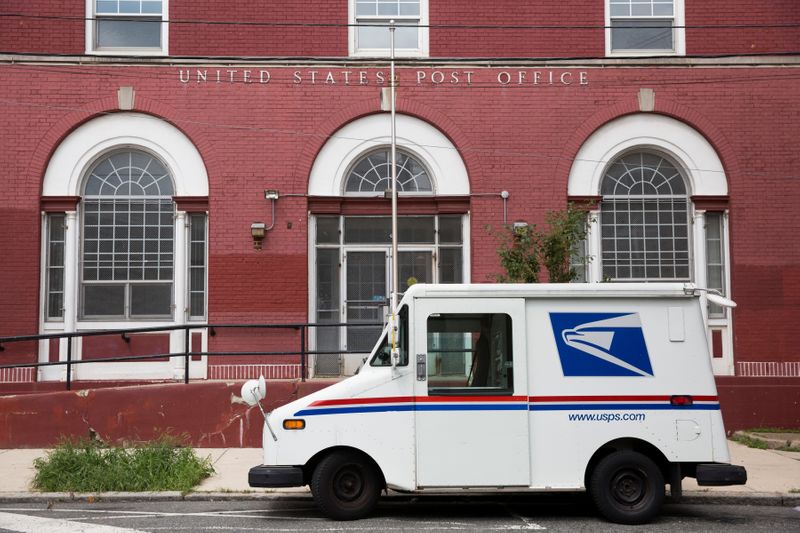By Costas Pitas
(Reuters) - Pennsylvania's Supreme Court ruled on Friday that mail-in ballots cannot be refused because a voter's signature does not appear to match the one on file, a decision that could help Democratic presidential candidate Joe Biden.
Pennsylvania is a battleground state whose 20 Electoral College votes are key to victory for both Republican President Donald Trump and Biden.
"(We) hold that county boards of elections are prohibited from rejecting absentee or mail-in ballots based on signature comparison conducted by county election officials or employees, or as the result of third-party challenges based on signature analysis and comparisons," Pennsylvania's top court ruled.
Democrats hailed the move while Republicans were critical.
"What if there’s no signature at all? Or someone just draws a line? Sounds pretty stupid," the digital director for Trump's 2020 campaign, Gary Coby, wrote on Twitter.
Many states have expanded early voting and the use of mail-in ballots ahead of the Nov. 3 election, as some Americans try to avoid crowded polls during the coronavirus pandemic.
Trump has repeatedly attacked mail-in voting, claiming without evidence that it will lead to widespread fraud. Democrats have argued it is a safe, reliable alternative to in-person voting.
So far, Democrats have voted in much larger numbers than Republicans in states which record party registration, including Pennsylvania, according to data from the U.S. Elections Project at the University of Florida.
The Pennsylvania case is one of hundreds of court battles being fought over voting rules and procedures.
The decision was welcomed by state Attorney General Josh Shapiro, a Democrat.
"Another win for voters in the Pennsylvania Supreme Court today," he wrote on Twitter, adding that the state's voter identification system is "safe and secure."

The U.S. Supreme Court on Wednesday allowed Alabama to ban curbside voting for voters with disabilities and those who face a high risk of contracting COVID-19, and an Iowa court upheld a law that makes it harder to fix problems with absentee ballot requests.
